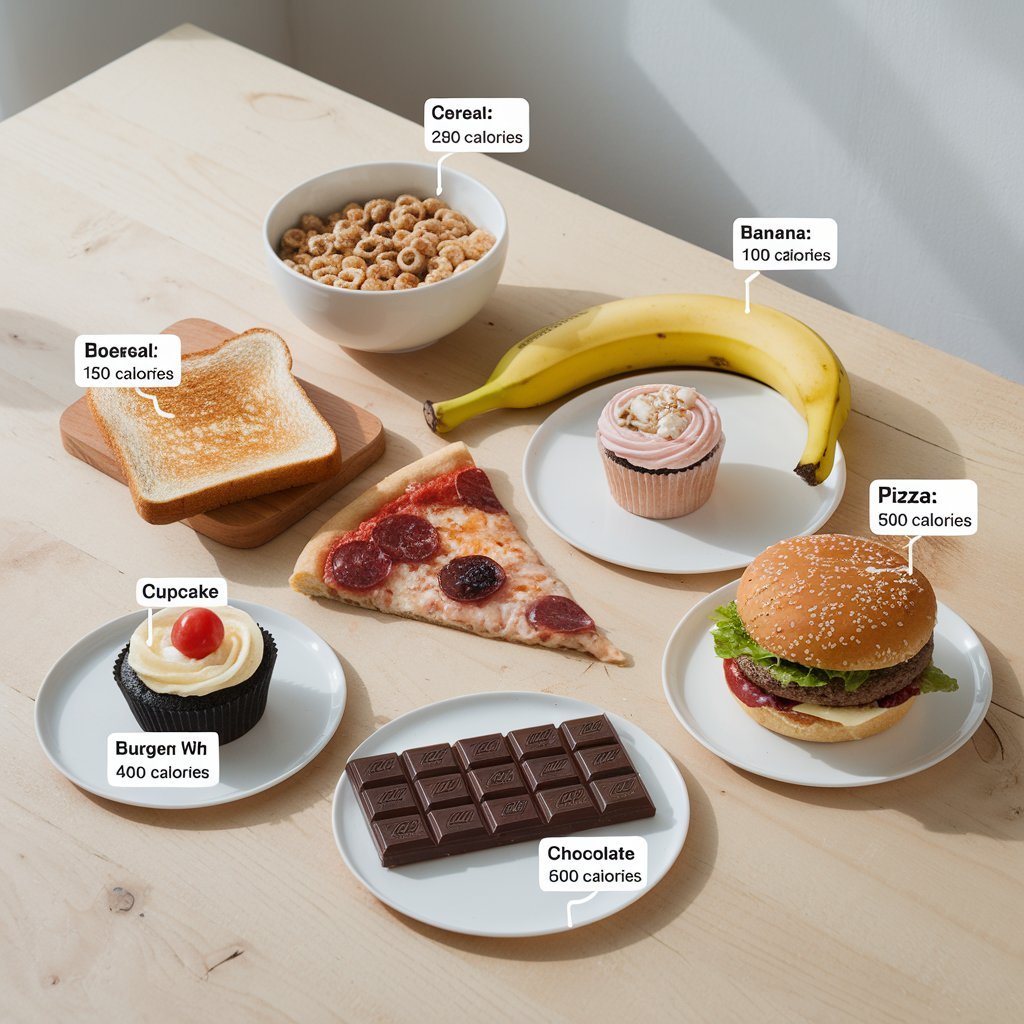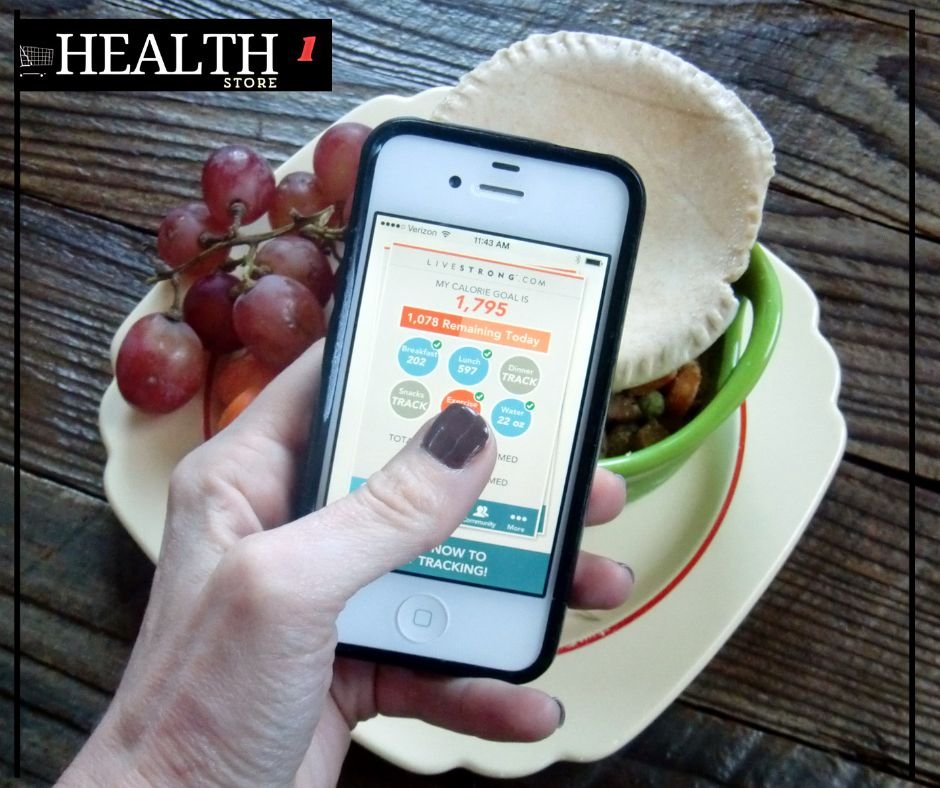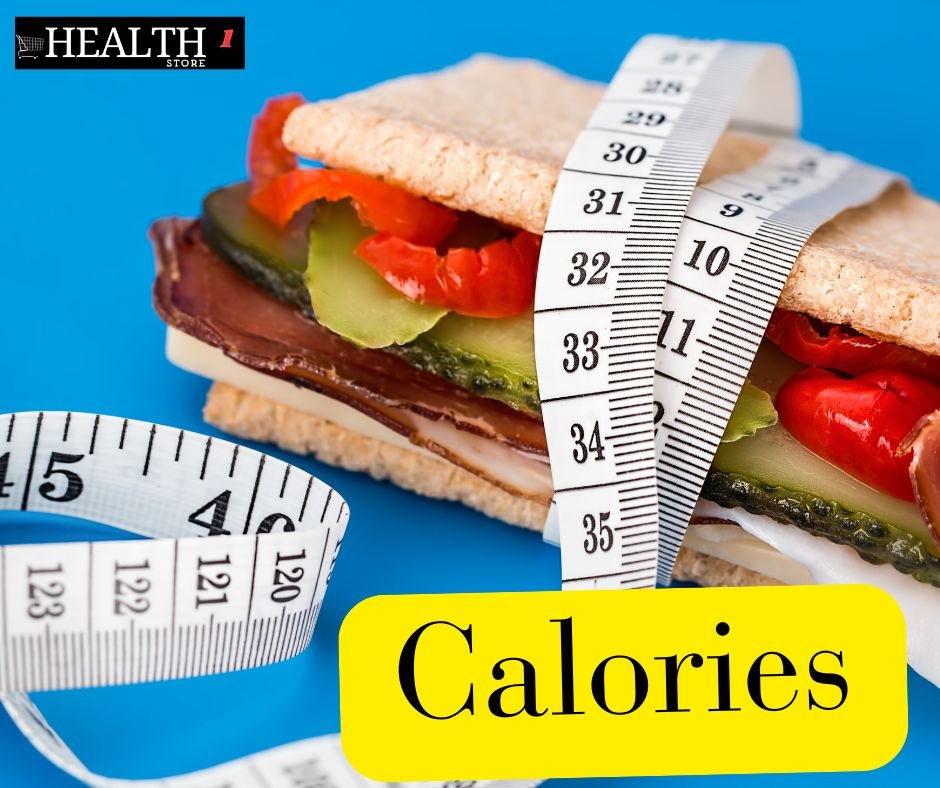Introduction
Calories are vital in nutrition and wellness, impacting weight, energy levels, and overall health. But what exactly are they? This comprehensive guide explores definition, how they work in the body, and how to manage them effectively.
Table of Contents
What are Calories?
They are units of energy that our body needs to perform every function, from basic metabolic processes to complex physical activities. A calorie represents the amount of heat required to raise the temperature of 1 gram of water by 1 degree Celsius.

Calorie Vs Kilocalorie
The terms “calorie” and “kilocalorie” are often used interchangeably, especially in nutrition, but they have a specific relationship that’s important to understand:
Definition:
- Calorie (cal): In scientific terms, a calorie (small “c”) is the amount of energy needed to raise the temperature of 1 gram of water by 1 degree Celsius.
- Kilocalorie (kcal): A kilocalorie, or kcal, is equal to 1,000 calories. It represents the energy required to raise 1 kilogram of water by 1 degree Celsius.
Usage in Nutrition:
- In nutrition, what we commonly refer to as a “calorie” is technically a kilocalorie (kcal). For example, when a food label states that something has 200 calories, it actually means 200 kilocalories, or 200,000 calories.
- This shorthand use of “calorie” instead of “kilocalorie” simplifies communication in everyday health and dietary contexts.
Why It Matters:
- For those in scientific fields, distinguishing between calorie and kilocalorie is important, as the terms have specific meanings in energy calculations.
- However, in dietary guidelines and food labeling, “calorie” nearly always refers to kilocalorie. This convention has become widely accepted and standardized, even if technically imprecise.
How They Impact Health
They provide the energy required to sustain life. The number of calories consumed versus the number expended affects body weight and health outcomes.
Weight Management
- Caloric Surplus: Consuming more calories than burned leads to weight gain.
- Caloric Deficit: Burning more than consumed leads to weight loss.
Impact on Metabolism
Our body’s resting metabolic rate (RMR) burns calories, even at rest, to support essential bodily functions.
| Factor | Calorie Burn Impact |
|---|---|
| Age | Metabolism decreases with age |
| Gender | Males typically have higher RMR than females |
| Body Composition | More muscle mass increases RMR |
| Hormones | Hormonal changes affect metabolism rates |
Caloric Needs: Determining Your Daily Requirement
Everyone’s caloric needs are unique, influenced by factors like age, gender, body composition, and physical activity level. Understanding your daily caloric requirement is crucial for effective health management.
| Life Stage | Average Caloric Needs (kcal/day) |
|---|---|
| Children (2-8 years) | 1000-1400 |
| Adolescents (9-18 years) | 1600-3200 |
| Adults | 2000-3000 |
| Elderly (over 60) | 1800-2200 |
These estimates are based on averages and may vary significantly based on individual metabolic factors and activity levels.
Caloric amounts in Macronutrients: Carbs, Proteins, and Fats
Each macronutrient provides different amounts of energy per gram:
- Carbohydrates: 4 calories per gram
- Proteins: 4 calories per gram
- Fats: 9 calories per gram
- Alcohol: 7 calories per gram (though not a nutrient, it adds to daily caloric intake)
Calorie Burn: How Physical Activity Affects

Physical activity can significantly increase calorie expenditure, with certain exercises burning more than others. Below is a table outlining typical calorie expenditure for common exercises.
| Activity | Calories Burned (per 30 minutes) |
|---|---|
| Walking (3 mph) | 100 |
| Running (6 mph) | 300 |
| Cycling (12-14 mph) | 250 |
| Swimming | 200 |
| Weight Lifting | 150 |
Calorie Counting for Weight Loss and Gain
Many people use calorie counting as a strategy to manage their weight. Here’s a practical approach to managing calorie intake:
- Set a Goal: Define whether the goal is weight loss, gain, or maintenance.
- Track Intake: Use apps or a journal to log daily food intake.
- Adjust as Needed: Regularly review caloric intake and make adjustments based on results.
Benefits and Drawbacks of Calorie Counting
| Benefits | Drawbacks |
|---|---|
| Helps identify eating patterns | Can lead to obsessive behaviors |
| Encourages mindful eating | May overlook nutrient quality |
| Can aid in setting realistic goals | Requires time and commitment |

Myths And Facts
Calories are often misunderstood. Here are some common myths and the truth behind them:
- Myth: All calories are created equal.
Fact: Caloric quality varies; 100 calories from veggies nourish differently than 100 from sugary snacks. - Myth: Skipping meals helps reduce calories.
Fact: Meal-skipping can lead to overeating later and metabolic slowdown. - Myth: Only physical activity burns calories.
Fact: They are also burned through basic metabolic processes, even during sleep.
Tips for Healthy Calorie Management
Calorie Management doesn’t mean strict dieting. It’s about creating balanced habits.
- Choose Nutrient-Dense Foods: Opt for whole foods like vegetables, lean proteins, and whole grains.
- Stay Hydrated: Sometimes thirst is mistaken for hunger.
- Eat Mindfully: Focus on portion sizes and avoid distractions during meals.
- Regular Activity: Daily exercise boosts calorie burn and maintains a healthy weight.
Frequently Asked Questions (FAQs)
Q: How many calories should I eat to lose weight?
A: It varies, but a general guideline is to reduce daily intake by 500 calories to lose approximately 1 pound per week.
Q: Are all calorie-tracking apps accurate?
A: While many apps are reliable, some may underestimate or overestimate due to varying food database information.
Q: Do low-calorie foods guarantee weight loss?
A: Not necessarily. Nutrient-dense foods are more effective for health than just low-calorie options.
Q: What happens if I eat too few calories over an extended period?
A: Consistently eating too few calories can lead to nutrient deficiencies, a weakened immune system, fatigue, and even muscle loss. It may also slow down your metabolism, making it harder to maintain weight loss long-term.
Q: Can calorie needs change over time?
A: Yes, calorie needs can change with age, activity level, hormonal fluctuations, and changes in body composition (like muscle loss or gain). For example, as we age, our metabolic rate typically slows, reducing caloric needs.
Q: Are liquid calories different from solid?
A: Liquid sources, like those from sugary drinks, can quickly add up without making you feel full, leading to excess calorie intake. Solid foods, especially those high in fiber and protein, tend to be more satiating and promote feelings of fullness.
Q: How can I avoid calorie-dense foods without feeling hungry?
A: Opt for foods high in fiber, protein, and water content, like fruits, vegetables, whole grains, and lean proteins. These foods can help you feel full on fewer calories, making it easier to manage hunger and calorie intake.
Q: Is it better to spread calorie intake throughout the day or eat fewer, larger meals?
A: This depends on personal preference and lifestyle. Spreading calories across 3–6 smaller meals can help stabilize blood sugar levels and curb hunger, while some prefer fewer, larger meals for convenience or to fit with specific diet patterns (like intermittent fasting).
Q: Do some foods require more calories to digest than they provide?
A: This concept, known as the “negative calorie” effect, is a bit of a myth. While some foods, like celery, have very low calories and require energy to digest, the calories used in digestion are minimal and do not offset the calories consumed.
Q: How accurate are calorie labels on packaged foods?
A: Calorie labels on packaged foods can be up to 20% off due to variability in portion sizes and manufacturing processes. It’s best to use them as a general guideline rather than an exact measurement.
Q: Can eating late at night lead to weight gain?
A: Weight gain primarily results from consuming more than burned, regardless of timing. However, late-night eating can sometimes lead to higher calorie intake, especially if it includes less nutritious, calorie-dense snacks.
Q: Do I need to eat back calories burned during exercise if I’m trying to lose weight?
A: It depends on your goals and the intensity of exercise. For moderate workouts, it’s usually okay to maintain a calorie deficit. However, for intense or long-duration activities, refueling with nutritious foods can prevent fatigue and aid recovery.
Q: Can I lose weight by only reducing calorie intake without exercising?
A: Yes, you can lose weight by creating a calorie deficit through diet alone. However, exercise helps maintain muscle mass, boosts metabolism, and provides numerous health benefits beyond weight loss.
Q: How do “empty calories” impact health?
A: “Empty calories” come from foods high in calories but low in nutrients (like sugary drinks and junk food). Regularly consuming these foods can lead to weight gain and nutrient deficiencies, which negatively impact health over time.
Q: Do high-calorie foods always lead to weight gain?
A: Not necessarily. High-calorie foods can be part of a balanced diet when consumed in moderation and within total daily caloric needs. Nutrient-dense high-calorie foods, like nuts and avocados, provide essential nutrients and can be beneficial when portion-controlled.
Q: How does stress affect calorie consumption and metabolism?
A: Stress can increase cravings for calorie-dense foods due to hormonal changes (like higher cortisol levels), and in some cases, it may slow metabolism. Managing stress through healthy habits can help in making mindful food choices.
Conclusion
Calories are essential to our health, providing energy for every aspect of life. By understanding caloric needs, their impact on our body, and effective management strategies, we can build healthier habits that support long-term wellness.
References
- Mayo Clinic. (2023). “Daily Caloric Intake: How Many Calories Do You Need?” Retrieved from Mayo Clinic website.
- Harvard T.H. Chan School of Public Health. (2022). “The Nutrition Source: Calories.” Retrieved from Harvard Health.
- American Heart Association. (2023). “Understanding Calories: A Guide to Caloric Needs.”



